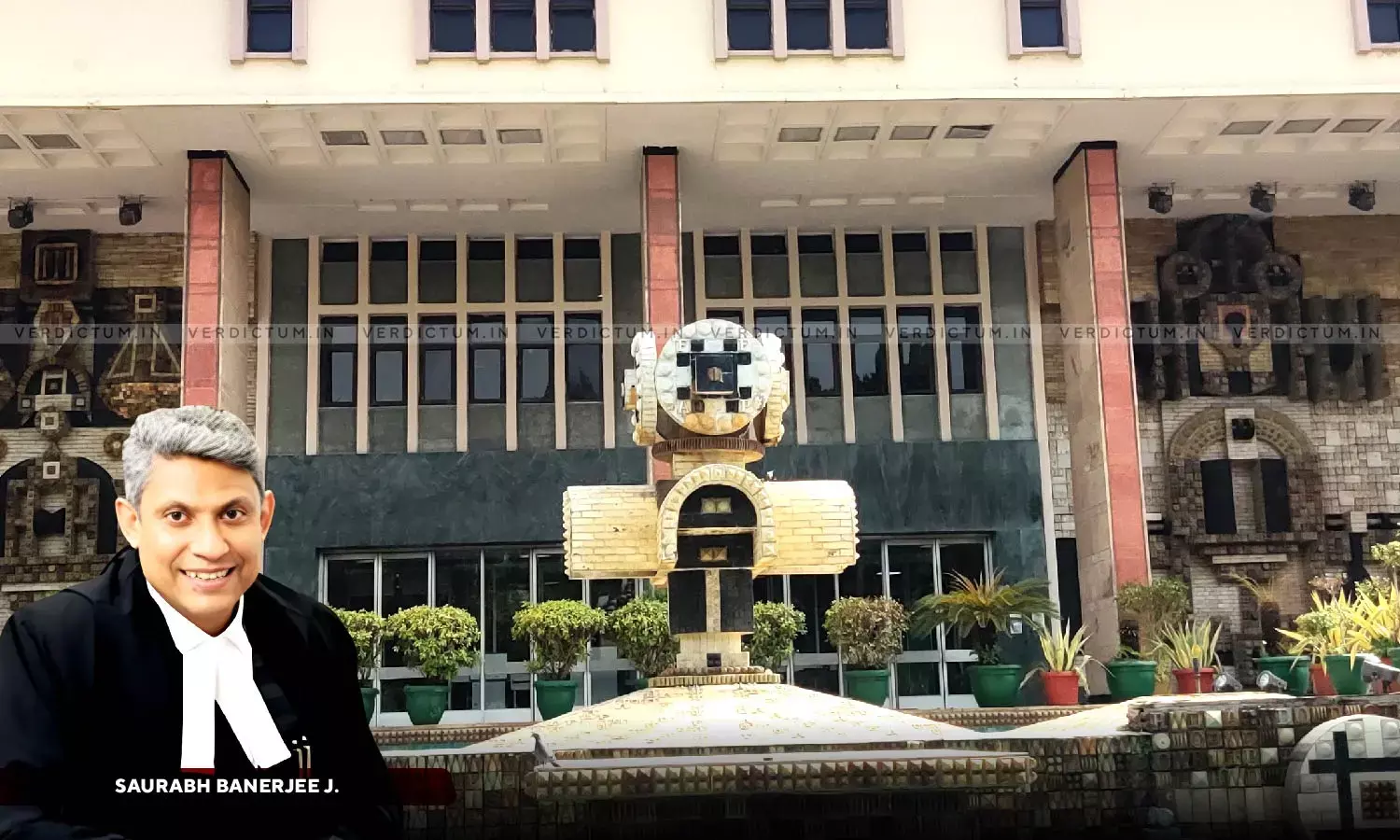Delhi HC Sets Aside Bail Granted 'Mechanically' In POCSO Case, Directs Vigilance Registrar To Seek Explanation From Trial Court Judge
The Delhi High Court set aside a bail order given by the trial court in the matter of an FIR registered under Section(s) 342/354/354-B/363 of the Indian Penal Code, 1860, and Section 10 of the Protection of Children from Sexual Offences Act, 2012 stating that it was granted mechanically, without carefully considering the facts and merits of the case.
A Bench of Justice Saurabh Banerjee while criticizing the non-reasoned order held that, “a perusal of the impugned order reproduced hereinabove reveals that the learned Trial Court has granted bail to the accused in a purely mechanical manner without expressing any opinion or without application of judicial mind on the facts or merits of the case. The same is against the very pre-requirements of granting bail to an accused especially in the present case, when it is involving, not only offences under Section(s) 342/354/354-B/363 IPC but also Section 10 POCSO Act.”
According to the FIR, on the early morning, the complainant (the father of the child involved) discovered that his 3-year-old daughter was missing from their first-floor residence. After searching, he found the child on the second floor, where the accused was residing as a tenant, allegedly engaged in a serious act of sexual misconduct with the child. The accused was arrested on the same day.
Subsequently, the accused sought bail before the Trial Court and he was granted bail citing that the material witnesses had been examined, the accused had been in judicial custody since 2021, there was no apparent threat of harm to the victim's family from the accused and that continued detention of the accused was not warranted.
Advocate Kamna Vohra appeared for the Petitioner and Advocate Mukesh Kumar appeared for the Respondents.
The petitioner's counsel contended that the Trial Court failed to consider the gravity of the offense while granting bail and did not provide adequate time for anyone to oppose the bail on behalf of the child involved. It was also argued that the impugned order lacked reasoning and was legally inappropriate.
The Court begun by emphasizing the seriousness of sexual offenses against children and women, noting that these incidents not only harmed the victims physically but also emotionally and mentally, affecting their overall growth and development.
The Court explained that the POCSO Act was enacted to specifically address sexual offenses against children. It establishes child-friendly procedures for reporting, recording evidence, investigation, and trial of such offenses, along with the establishment of Special Courts for speedy trials.
The Court pointed out that one of the unique features of the POCSO Act is that it presupposes the guilt of the accused.
“One of the special features of POCSO Act is that Section 29 of POCSO Act, presupposes the guilt of an accused.”
The Court reminded that when considering bail applications in cases involving sexual offenses, certain factors must be taken into account, including the nature of the offense, the severity of the punishment, the accused's character, and the potential threat to witnesses.
“the basic tenets of law where a Court while considering the grant of bail is required to judicially apply its mind and be satisfied on the basis of the facts that are borne out from the FIR and report of the Investigating Officer and surroundings and the documents and materials in existence. It is a trite law that the order granting or rejecting bail has to be a speaking one justifying the findings arrived at by the Court.”
In addition to the standard bail considerations, the Court listed specific factors to be considered in cases related to sexual offenses which include the age of the victim, the age difference between the victim and the accused, the ferocity of the offense, the relationship between the victim and the accused, and the proximity of their residences. The Court found that the bail in the present case was granted in a mechanical manner.
The Court emphasized the importance of witness protection in sexual offense cases, as threats, intimidation, and witness hostility can hinder the fair trial process. The Court highlighted that the ultimate goal was to ensure a fair trial and protect the interests of society, even if it meant restricting the personal liberty of the accused.
The Court set aside the impugned bail order. Additionally, it instructed the Registrar (Vigilance) to seek an explanation from the concerned Judge who passed the non-reasoned order and report to the Inspecting Judges Committee for consideration.
Cause Title: N v. State & Anr., [NC No. 2023:DHC:6253]
Click here to read/download Judgment












